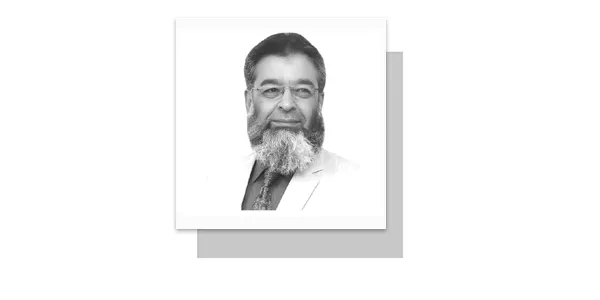THE perception that Pakistan’s legal system disproportionately targets the weak while offering leniency to the powerful is, unfortunately, well-founded. Many believe the law serves as a weapon against the vulnerable, while the influential manipulate it to their advantage. This view, shaped by numerous instances where justice appears skewed, has eroded public trust in the judicial system and fostered a dangerous societal divide.
One glaring example is the case of Raymond Davis, a CIA contractor who shot and killed two Pakistanis in Lahore on January 27, 2011. Despite the severity of his crime, Davis was released after the victims’ families reportedly accepted “blood money” under Pakistan’s Qisas and Diyat law. His swift departure from the country, facilitated by foreign influence and political pressure, left many Pakistanis frustrated. The incident reinforced the belief that the powerful can escape justice while ordinary citizens bear the full weight of the law.
Diyat, or blood money, is an Islamic legal concept rooted in the Quran and Sunnah, serving as compensation paid to the family of a murder victim. The Quran outlines the principle of Qisas (retribution) but also allows for the option of forgiveness and the acceptance of Diyat. The Sunnah emphasizes justice, fairness and the importance of preserving life. Diyat is meant to promote reconciliation and forgiveness, but in cases like Raymond Davis’s, its application appears manipulated by those with influence, tarnishing its intended purpose.
Raymond Davis later wrote a book titled “The Contractor,” in which he provides a detailed account of his imprisonment in Pakistan and mocks the country’s legal system. His book underscores how easily the powerful can circumvent justice, exposing vulnerabilities within the legal process. It serves as a reminder of deep flaws within the system and the urgent need for reforms to ensure justice is applied equally to all.
Similarly, the case of Shahrukh Jatoi, a wealthy young man who murdered university student Shahzeb Khan on December 25, 2012, exemplifies the unequal application of the law. Despite being sentenced to death, Jatoi evaded his punishment through legal maneuvers, including a questionable medical report and an eventual out-of-court settlement with the victim’s family. Jatoi’s release was widely criticized as an example of how wealth and influence can allegedly manipulate the legal system, allowing the rich to buy their way out of punishment.
A more recent example is the case of Natasha, a Karachi resident and the wife of a wealthy businessman, who has come under scrutiny following a tragic hit-and-run incident. Reports suggest Natasha was responsible for the deaths of several individuals, yet she is allegedly using her financial resources and connections to offer Diyat (blood money) to the victims’ families to settle the matter out of court. Furthermore, there are rumors that she intends to leave the country soon after, potentially to evade legal repercussions. This case has sparked widespread outrage, with many questioning the fairness of a system that allows the wealthy to escape justice so easily. Natasha’s case is another stark reminder of the deep-rooted inequities in the application of law in Pakistan.
The impact of such disparities on society is profound. When the public perceives that the law does not apply equally to all, trust in the legal system and the state as a whole is eroded. This lack of trust can lead to a breakdown in social order, as individuals may feel compelled to take matters into their own hands or resort to alternative means of seeking justice. The perception of a dual legal system—one for the rich and powerful and another for the poor and weak—creates a sense of injustice that can breed resentment and social unrest.
Moreover, when the influential are seen to evade justice with ease, it sets a dangerous precedent for others in positions of power. It emboldens those who believe they can act with impunity, knowing that the law can be bent or broken to suit their needs. This perpetuates a culture of corruption and lawlessness, undermining the very foundations of a just and equitable society.The facilitation of such disparities often involves multiple actors, including law enforcement agencies, judiciary and powerful personalities. Corruption within these institutions plays a significant role in enabling the powerful to escape justice. Bribery, coercion and political pressure contribute to a system where the law is applied selectively, further entrenching the belief that justice is not served equally in Pakistan.
To address this issue, it is essential to strengthen the rule of law and ensure it applies equally to all citizens, regardless of social status or wealth. This requires reforming the legal system to eliminate corruption and ensure impartiality while holding those in power accountable for their actions. Transparency and accountability must be at the forefront of efforts to restore public trust in the legal system. Additionally, there needs to be a cultural shift in how the law is perceived and applied, with a renewed emphasis on the principles of justice, fairness and equality.
In conclusion, the perception that the law in Pakistan disproportionately affects the weak while offering escape routes to the powerful reflects deep-seated inequalities within the legal system. This disparity distorts society and undermines the very notion of justice. To create a more just and equitable society, it is crucial to address these inequalities and ensure that the law is applied fairly and impartially to all citizens, regardless of their status or influence. Only then can trust in the legal system be restored and the rule of law upheld.
—The writer is contributing columnist, based in Islamabad.
(ememiqbal68@gmail.com)










